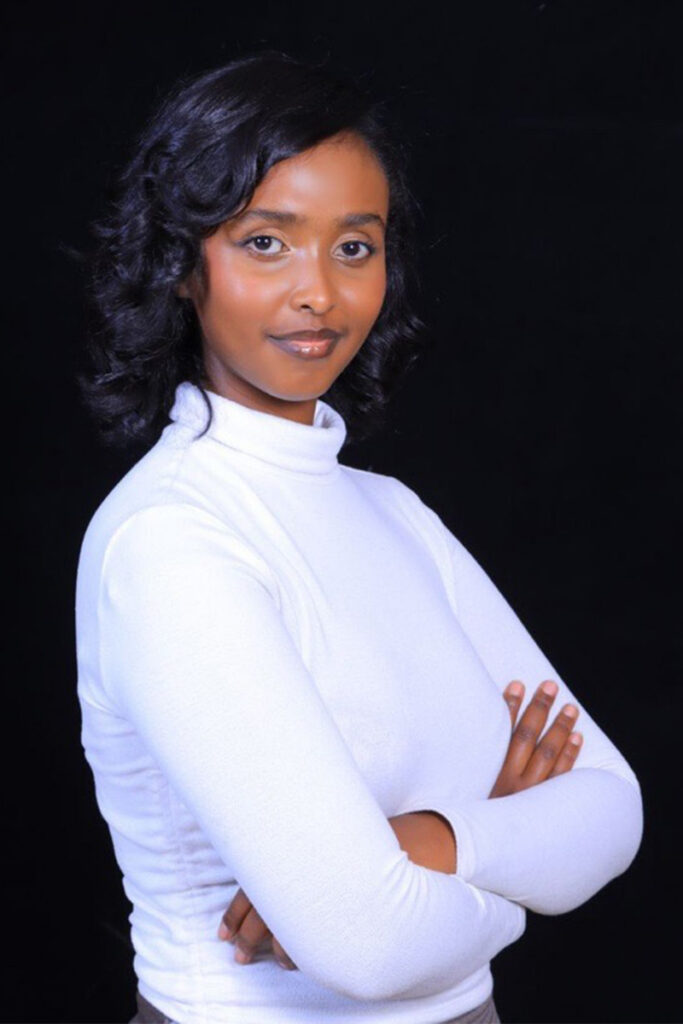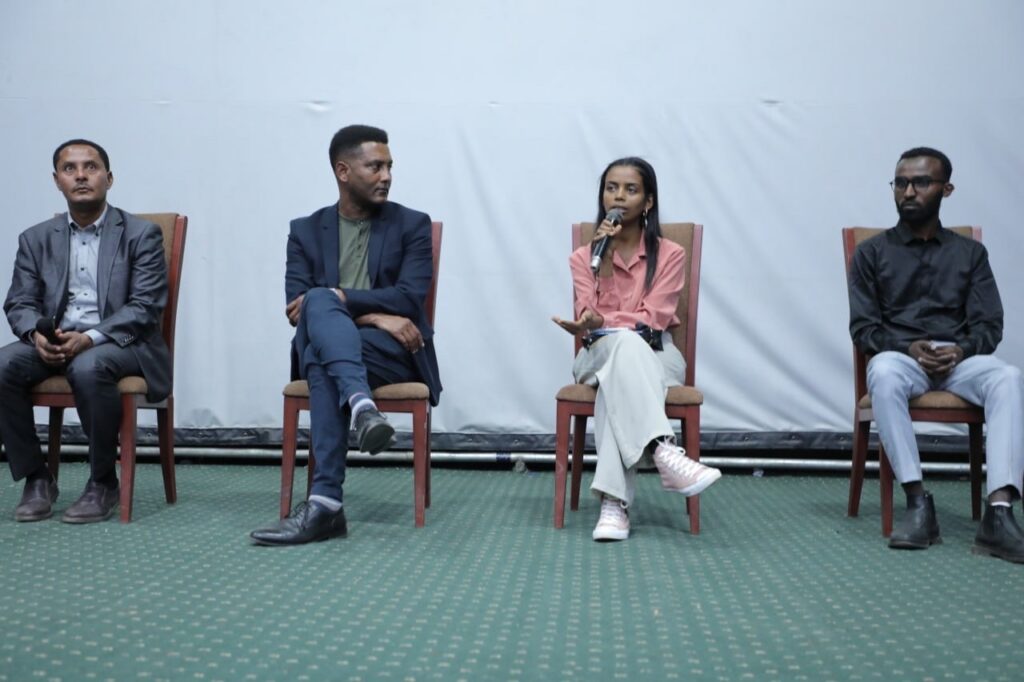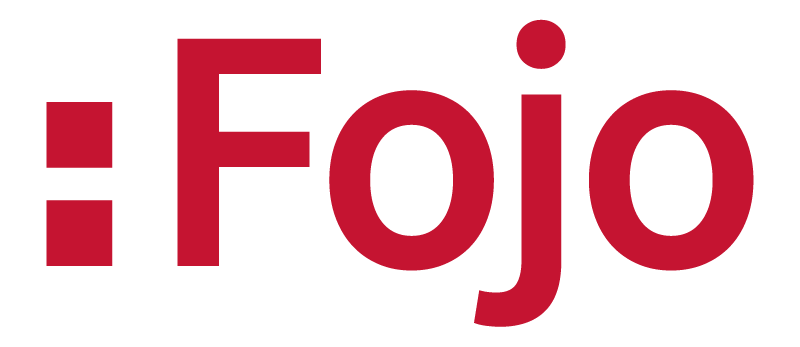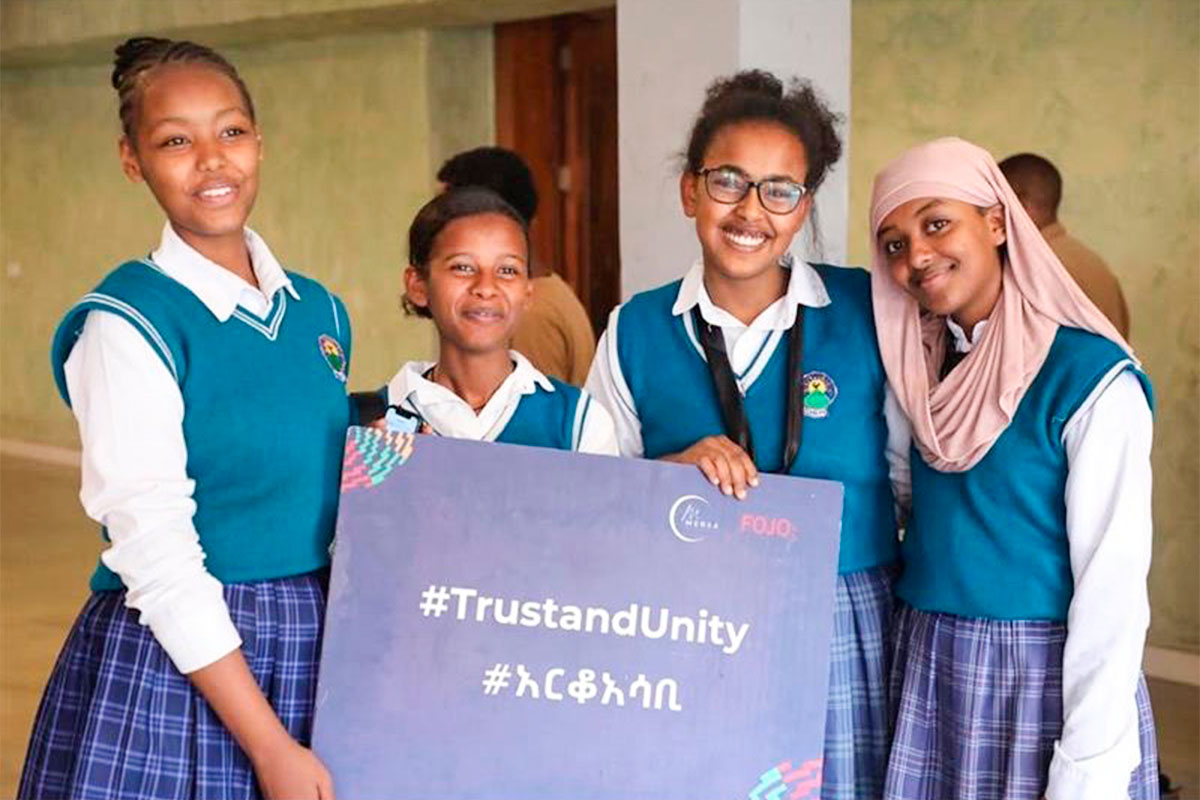Inspired by a documentary showcasing young Ethiopian designers and artists collaborating to raise awareness about media literacy, social cohesion and civic dialogue, Mersa Media Institute arranged a nationwide youth dialogue initiative about media literacy, encouraging youth leadership. “I never imagined my voice could matter this much” said Meron Alemayehu, a 24-year-old health science student from Jimma University about her role as a panellist.
Standing before a packed room, Meron Alemayehu shared her lived experiences as a digital native and the host of her own podcast, ‘Lijagereditu’ (“the young girl”) where she regularly discusses critical matters focused on women and girls’ issues with her peers. For her, the event was not just another panel but a powerful platform to be heard and elevate youth voices, to help shape meaningful conversations about civic life and responsible use of digital platforms.
Meron Alemayehu was one of over 1300 young people who took part in the nationwide youth dialogue initiative, inspired by the Social Fabric documentary screening project, an effort spearheaded by MERSA Media Institute with support from Fojo’s Ethiopia Programme, financed by The Swedish Embassy in Addis Ababa. The screening was designed not merely to show the film but to encourage a movement of dialogue, reflection and youth-led civic engagement.
Social Fabric showcases young Ethiopian designers and artists as they collaborate to raise awareness about vital issues such as media literacy, social cohesion, and civic dialogue among the youth. The film tells a story of hope through artistic expressions that aim to foster a culture of tolerance and peace for a brighter future. After the screening, the audience was encouraged to engage in open dialogue where they could speak, listen and lead the thoughtful conversations that followed.
With national elections on the horizon next year, the timing of this project couldn’t be better. In a country often divided along ethnic, regional and political lines, these screenings are helping to weave something essential; a renewed belief in dialogue, shared understanding and the role of young people in shaping the future.
Weaving stories into civic dialogue
The documentary Social Fabric was developed and supported by Fojo as part of the first phase of Fojo’s media programme in Ethiopia. The aim is to raise awareness among youth about hate speech, fact-checking and critical thinking in the age of social media.
In each of the five cities in which it was screened —Jimma, Hawassa, Arba Minch, Wolaita and Addis Ababa – young people gathered to engage in meaningful and cross-cultural conversations that are often missing from public forums, spurred by the work of the artists and designers in the documentary. The dialogue was enriched by diverse and distinctive contributions from each city.

In cities like Jimma, the discussion centred on the role of media in fostering social cohesion. Arba Minch’s conversation explored the city’s transformation into a thriving tourist destination and the pivotal role of youth in sustaining this peace. In Wolaita, aligned with Adwa Victory Day, reflections on historical resistance resonated deeply, while Hawassa’s dialogue, coinciding with World Press Freedom Day, emphasised the power of digital platforms in amplifying youth voices.
According to Rakeb Bizuayehu, Project Manager at Mersa Media Institute, this design was intentional. Each experience was carefully tailored to the local context to ensure it was participatory and inclusive. Peer led discussions created intimacy, panels grounded the emotions of the film in real world context.

“For many,” Rakeb Bizuayehu added, “the idea of social fabric has changed from something abstract to something alive. There is a growing realisation that community is something we weave, thread by thread, story by story to create a social tapestry.”
Beyond the screen
The engagement sparked by the Social Fabric documentary screenings became an inspirational tool for conversations that ripple far beyond the event. Young people began organising their own screenings, demonstrating the film’s power as a tool for civic inspiration and dialogue.
At the Addis Ababa University Institute for Peace and Security Studies, a student who attended the screening was inspired to host a session within his department, creating space for youth voices to engage in academic and policy discussions on peace, security and social cohesion.
In Arba Minch, a student screened the film in her dormitory. This initiative sparked a bold and open conversation around reproductive health – showing how peer-led spaces can drive meaningful and courageous dialogue.
Beyond physical spaces, discussions also gained momentum online. On social media, the documentary became a talking point for youth activism, while media houses have shown interest and engaged in discussions as well as run coverage on radio, TV and community media. Across all these spaces, Social Fabric proved that when young people are encouraged and strengthened, they not only engage – they take initiative and lead.

Meron Alemayehu sharing her learning from the event also said that “I used to think that public discussions and civic engagement was for people in suits. Now I see that it is also for people like me, for the youth.”
“Investing in initiatives that empower youth is an investment in a future where dialogue, understanding and active citizenship form the foundation of society. This initiative is more than a project; it turns storytelling into civic engagement.” Rakeb added.
The youths themselves said that they had come to feel genuinely included in conversations about media, identity and civic life. The project has highlighted the potential of youth-driven platforms in building a more inclusive society.



